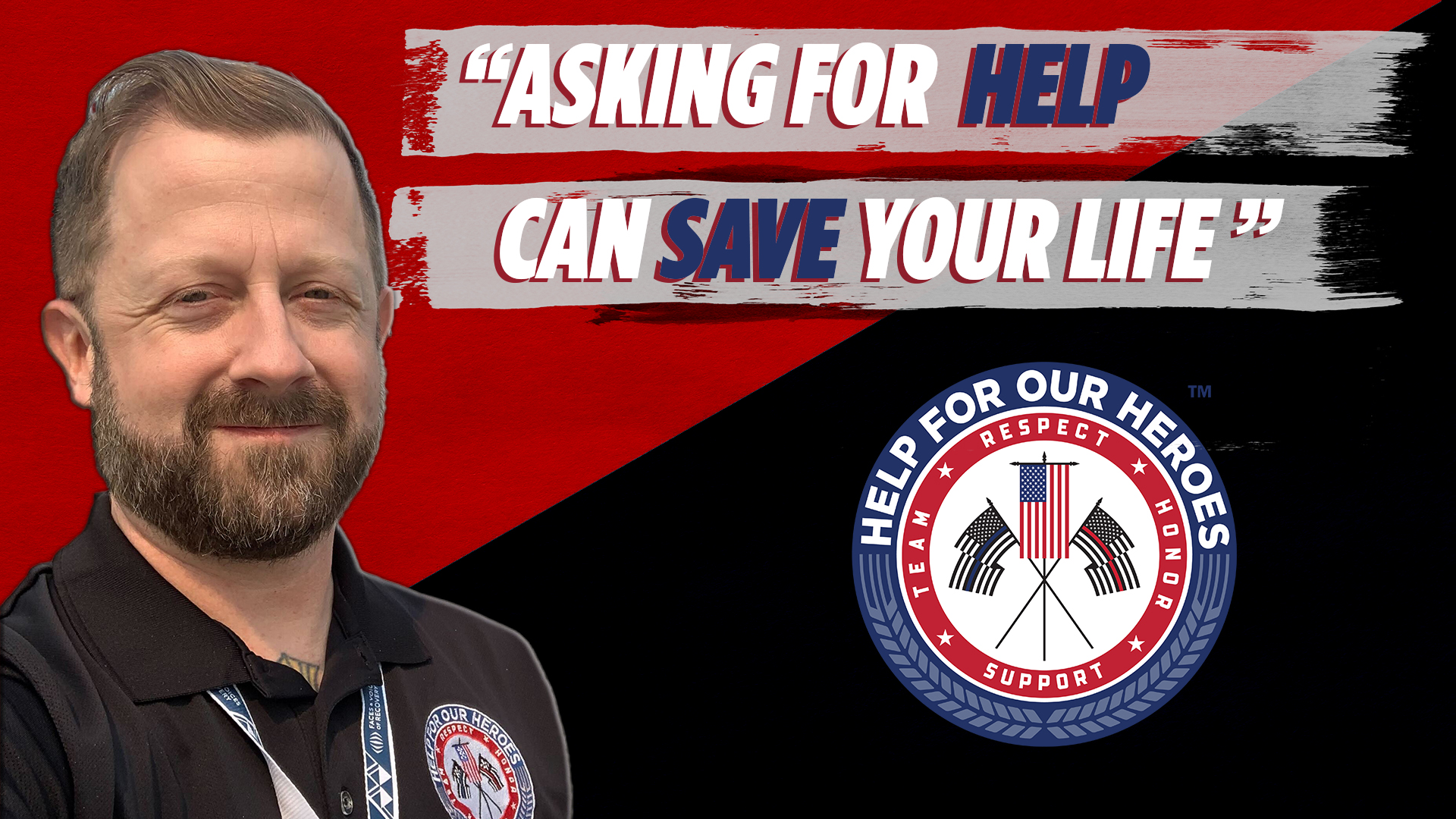Repeated exposure to traumatic situations can have a harmful impact on the mental health of first responders and military personnel. As time passes, some of these people may resort to substance use as a way to deal with post-traumatic stress symptoms or to numb their emotions.
In addition, they may avoid discussing their feelings in an attempt to forget about the events they have experienced. However, this approach typically leads to deteriorating mental health.
This Mental Awareness Month, let us honor our brave men and women in uniform and be mindful of the unique challenges they face every day.
The Help For Our Heroes program was designed with these challenges in mind by veterans and first responders who know what it’s like to work on the front line. This innovative program incorporates evidence-based therapy for veterans and experiential treatments to help them on their road to wellness.

The unique challenges facing first responders and military veterans include anxiety, depression, and difficulty controlling anger. However, the leading cause of substance use disorder and alcoholism among this population is untreated post-traumatic stress disorder (PTSD).
After dealing with a shocking or traumatic event, people can feel a range of emotions that include fear, distress, and anxiety. Usually, these symptoms pass with time, and the person can move forward without thinking about the event. However, people with post-traumatic stress disorder experience flashbacks, causing them to relive the traumatic event and re-experience symptoms like a racing heartbeat and anxiety. In an attempt to avoid these symptoms, people may engage in unhealthy drinking or drug use.
In a study on substance use disorders (SUD) among first responders, published in the American Journal of Drug and Alcohol Abuse, researchers found that more than 40% of participants screened positive for an SUD. This percentage is directly correlated with repeated exposure to trauma.
Similarly, the National Institute on Drug Abuse highlights a unique connection between the traumas associated with military life, such as participation in wars and an increased risk of developing an SUD. Deployment is also associated with risky behaviors that include gambling and binge drinking.
Other reasons for an increased risk of SUD in first responders and military veterans are:
Yes, therapy for veterans can provide the tools and skills necessary to achieve lasting sobriety. Help For Our Heroes is one such program.
Help For Our Heroes is a therapeutic, evidence-based program exclusively designed to reduce the prevalence of suicides and addiction among military veterans and first responders. Unlike traditional therapeutic programs, Help For Our Heroes was created by former first responders and military veterans who understand this population’s unique challenges and the coping strategies that work to overcome them.
To those suffering from immense stress and chemical dependency, this program provides skills that improve physical, mental, and emotional well-being. Through this program, hundreds of military veterans and first responders have achieved lasting sobriety.
Often, our brave military veterans and first responders suffer from mental and physical pain in silence. This can cause an immense level of stress that frequently leads to drug and alcohol abuse.
Despite the negative consequences of abusing drugs or alcohol, some people struggle to stop due to painful and sometimes dangerous withdrawal symptoms. For these issues, we offer medically supervised detox.
Medically supervised detox is a program that monitors people who are detoxing from drugs and alcohol in a safe and supportive environment. Medications are administered during the program to minimize drug and alcohol cravings as well as withdrawal symptoms. This program is offered as residential treatment under the supervision of medically trained staff members.
Other programs we offer for substance abuse include:
Additional services include:
Download a sample schedule here.
For those struggling with mental health challenges, we offer multiple services, including residential and personal hospitalization programs. People best suited for these programs struggle with a substance use disorder and one of the following co-occurring conditions:
Some people may need longer-term support for these issues and would benefit from our outpatient or intensive outpatient programs. This way, they may continue working with a therapist to reach their treatment goals.
We work with veterans and first responders at varying stages in their journey to recovery and wellness. In addition to our many treatments, we provide equine-assisted psychotherapy, allowing our clients to gain the mental benefits of working with horses.
Transformations Treatment Centers are licensed by the Department of Children and Family Services and the Agency for Healthcare Administration (AHCA). We are also Joint Commission certified. The latter accreditation is awarded only to facilities that maintain rigorous safety and adequate care standards. To keep this status, we are subject to regular evaluations administered by representatives from each organization.
If you or a loved one could benefit from the Help For Our Heroes program, we’re here to help. Contact us to begin your journey today.